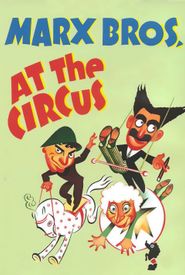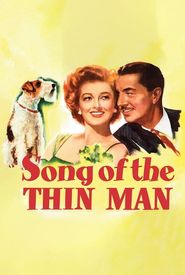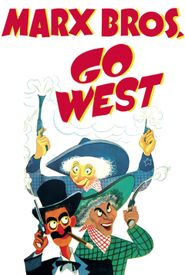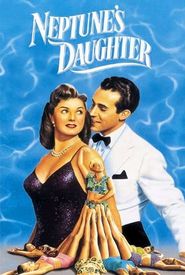Edward Buzzell was a celebrated American film director, whose remarkable career stretched across numerous decades, leaving an indelible mark on the cinematic landscape. Among his impressive credits with the prestigious Metro-Goldwyn-Mayer studio, Buzzell's repertoire boasted a diverse array of films that catered to a wide range of audiences.
One of his most notable directorial endeavors was the comedy classic Honolulu, which premiered in 1939 and has since become a beloved staple of the genre. Buzzell's ability to expertly balance humor and heart was also on full display in his collaborations with the Marx Brothers, as evidenced by the hilarious escapades captured in At the Circus (1939) and Go West (1940).
In addition to his work in comedy, Buzzell also demonstrated a keen eye for crafting vibrant musicals, as seen in the 1943 film Best Foot Forward, which featured the talented Lucille Ball in a starring role. He continued to showcase his mastery of the genre with Neptune's Daughter (1949),a captivating underwater extravaganza that starred the enchanting Esther Williams.
Furthermore, Buzzell's directorial range was also on full display in his work on the romantic comedy Easy to Wed, which brought together the talents of Van Johnson, Esther Williams, and Lucille Ball. This film, released in the early 1940s, is a testament to Buzzell's ability to effortlessly blend humor, romance, and drama, resulting in a cinematic experience that continues to delight audiences to this day.
Born on November 13, 1900, in the vibrant and bustling metropolis of Brooklyn, New York, a city that was rapidly transforming into a hub of artistic and cultural expression, Edwin "Buzz" Buzzell embarked upon a distinguished career that would span multiple mediums, commencing on the esteemed stages of Broadway, where he honed his craft and gained valuable experience before transitioning to the silver screen. His inaugural film appearance was in the 1929 cinematic adaptation of George M. Cohan's iconic musical, Little Johnny Jones, where he shared the spotlight with the talented actress Alice Day. Buzzell's early work also included a series of Vitaphone shorts, as well as the groundbreaking two-strip Technicolor short, The Devil's Cabaret, released in 1930, in which he played the pivotal role of Satan's trusted assistant, further demonstrating his versatility and range as a performer.
Notable beyond his impressive body of work as a filmmaker, Buzzell also explored the realm of screenwriting, crafting a select few scripts during the early 1930s, a testament to his multifaceted talents and innovative spirit.
As his career continued to evolve, he transitioned into the role of producer, overseeing the creation of The Milton Berle Show, a groundbreaking television program that made its debut in 1948, marking a significant milestone in the development of modern television entertainment.
Edward Buzzell's life outside of his professional endeavors was defined by a series of significant personal relationships. Specifically, he was twice married to women who were also established figures in the entertainment industry. His first marriage, which took place in 1927, was to the renowned actress Ona Munson. Unfortunately, this union did not prove to be a lasting one, as the couple opted to go their separate ways in the early 1930s.
Subsequently, Buzzell tied the knot with another actress, Lorraine Miller. This second marriage was a more enduring one, and it is unclear what ultimately led to the couple's decision to part ways. Nonetheless, Edward Buzzell's personal life was marked by a series of important relationships that played a significant role in shaping his overall identity.













































